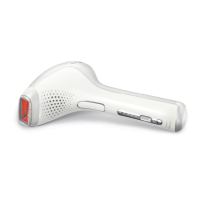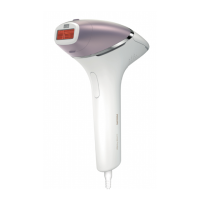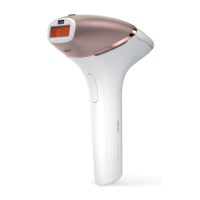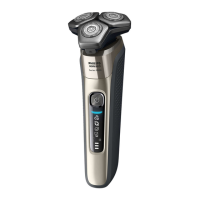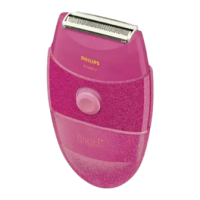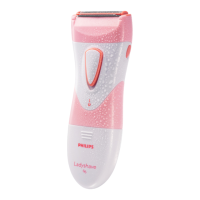8
English
-
If you have taken any form of isotretinoin Accutane or Roaccutane in the
last six months. This treatment can make skin more susceptible to tears,
wounds and irritations.
-
If you are taking photosensitizing agents or medications, check the
package insert of your medicine and never use the device if it is stated
that it can cause photo-allergic reactions, photo-toxic reactions or if you
have to avoid sun when taking this medicine.
-
If you take anticoagulation medications, including heavy use of aspirin, in
a manner which does not allow for a minimum 1-week washout period
prior to each treatment.
Never use the device:
-
If you have received radiation therapy or chemotherapy within the past 3
months.
-
If you are on painkillers which reduce the skin's sensitivity to heat.
-
If you take immunosuppressive medications.
Pathologies/Disorders
Never use the device:
-
If you have diabetes or other systemic or metabolic diseases.
-
If you have congestive heart disease.
-
If you have a disease related to photosensitivity, such as polymorphic
light eruption (PMLE), solar urticaria, porphyria etc.
-
If you have a history of collagen disorder, including a history of keloid
scar formation or a history of poor wound healing.
-
If you have epilepsy with flashlight sensitivity.
-
If your skin is sensitive to light and easily develops a rash or an allergic
reaction.
-
If you have a skin disease such as active skin cancer, you have a history
of skin cancer or any other localized cancer in the areas to be treated.
-
If you have a history of vascular disorder, such as the presence of
varicose veins or vascular ectasia in the areas to be treated.
-
If you have any bleeding disorder.
-
If you have a history of immunosuppressive disease (including HIV
infection or AIDS).
Skin conditions
Never use the device:
-
If you have infections, eczema, burns, inflammation of hair follicles, open
lacerations, abrasions, herpes simplex (cold sores), wounds or lesions
and haematomas (bruises) in the areas to be treated.
-
On irritated (red or cut), sunburned, recently tanned or fake‑tanned skin.
-
On the following areas: On moles, freckles, large veins, darker pigmented
areas, scars, skin anomalies without consulting your doctor. This can
result in a burn and a change in skin color, which makes it potentially
harder to identify skin-related diseases.
-
On the following areas: warts, tattoos or permanent make‑up.
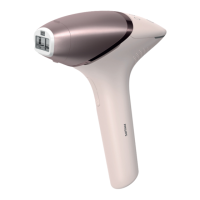
